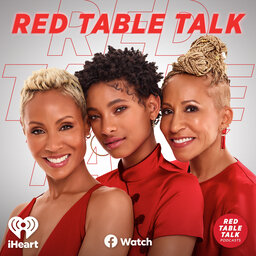Weight Prejudice (Queen Latifah recap)
BBWs, unite! The Red Table Talk community is joining Queen Latifah in her fight against weight prejudice. At the virtual red table, we’re revealing the truth behind the BMI, and why you should absolutely ignore yours. Tracy, Cara, Alisa Deanes Davis, and Vanity Eddy share about the family who have uplifted them, and the family, doctors, and coworkers who have tried to tear them down. Listen in on this conversation to hear the unfiltered ups and downs of these four women’s journeys to body acceptance.
Hosts Information:
Cara Pressley
@thecareercheerleader Cara’s Instagram
@TheCareerCheerleader Cara’s Facebook
@the1cheering4U Cara’s Twitter
@FeelinSuccessful Cara’s TikTok
Cara’s Website
Tracy T. Rowe
@tracytrowe Tracy’s Instagram
@troweandco Tracy’s Facebook
@tracytrowe Tracy’s Twitter
@tracytrowe Tracy’s TikTok
Tracy’s Website
----
#LRTT
Listening and loving the show? Please be sure to rate and review.
Have a question you want us to discuss on Let’s Red Table That? Email us at: letsredtablethat@redtabletalk.com
-----
LET’S RED TABLE THAT is produced by Red Table Talk Podcasts. EXECUTIVE PRODUCERS Jada Pinkett Smith, Fallon Jethroe and Ellen Rakieten. PRODUCER Kyla Carneiro. ASSOCIATE PRODUCER Yolanda Chow. EDITORS AND AUDIO MIXERS Calvin Bailiff and Devin Donaghy. MUSIC from Epidemic Sound. LET’S RED TABLE THAT is in partnership with iHeartRadio.
In 1 playlist(s)
Red Table Talk
Join Jada Pinkett-Smith, her daughter Willow Smith and mother Adrienne Banfield-Norris as they open …Social links
Follow podcast
Recent clips

Jay Shetty Reveals His Highly Anticipated Rules of Love
36:13

AN RTT SPECIAL EVENT: A DIFFERENT WORLD REUNION
43:30

How to Find and Keep a Healthy Relationship
45:52
 Red Table Talk
Red Table Talk